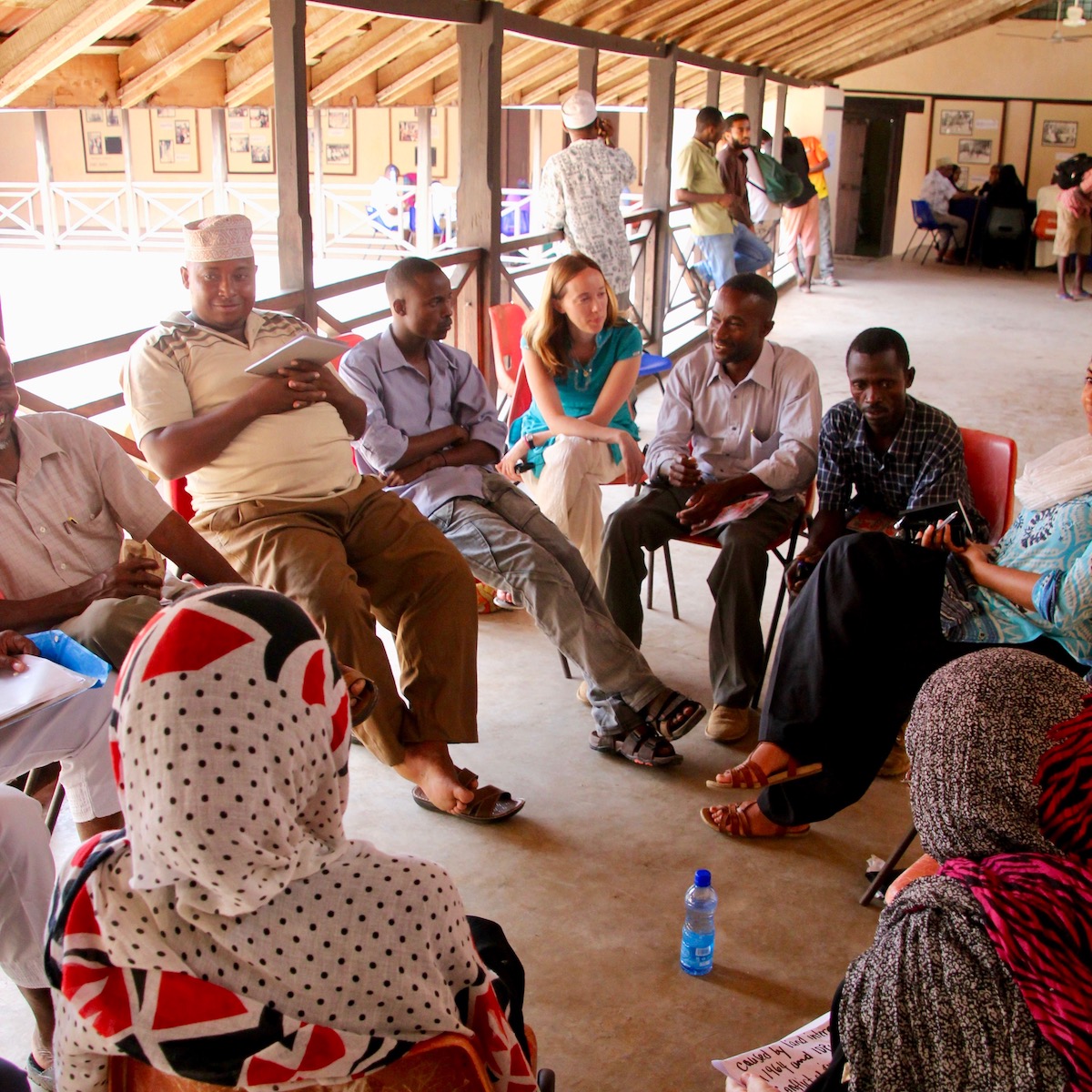FAQs
These questions pertain to Accountability Counsel’s model and strategy. For more information about accountability offices, please see our Accountability Office FAQs page.
Question: What is Accountability Counsel?
Answer: Accountability Counsel is a legal nonprofit that supports communities around the world to protect their human rights and environment. As advocates for people harmed by internationally financed projects, we employ community driven and policy level strategies to access justice. We are a global team working from four regions divided equally between the Global South and North. Headquartered in San Francisco, California, we have an office in Washington, D.C., and have a regional presence in Asia and are building a presence in Africa. We partner with organizations and communities around the world.
Natalie Bridgeman Fields founded Accountability Counsel to continue more than a decade of her work toward environmental and human rights accountability in international finance and development. Accountability Counsel’s status as a nonprofit organization began in September 2009, after Natalie received an Echoing Green Fellowship to support the organization’s founding. We were recognized as a high impact social enterprise with a fellowship from the Draper Richards Kaplan Foundation in 2015.
The impact we seek through our theory of change is that: communities take part in decisions that affect them and secure remedy to realize rights; effective and robust accountability systems deter abuses; and international institutions and corporations respect communities and prevent abuse.
—

Accountability Counsel’s Sarah Singh with community partners at a coalition training in
Lamu, Kenya (credit: Desiree Koppes)
Question: How do you select your cases and partners? How do communities find you?
Answer: To ensure that we do not replicate the power dynamic we seek to upend and are a trusted, wanted partner in communities, we only take cases in which communities request our support. Communities typically find us through civil society networks, both formal and informal. Often, there are only one or two degrees of separation between directly affected communities harmed by an international investment and a member of Accountability Counsel’s team. We then screen requests through a set of criteria, including whether we believe that there can be a positive outcome for the communities and if lessons from the case can be translated into systemic change. For more information, see our Communities program approach and code of ethics.
We do not have the capacity to take on every request for support we receive, so we also serve as a resource hub by training communities and advocates on what accountability offices are and how to use them, sharing lessons from our cases publicly, and connecting people with organizations who may be better able to support them.
—
Question: Why does your strategy focus on accountability offices?
Answer: Our model uses accountability offices tied to international investments as a high-leverage point of influence to give communities a voice in the decisions affecting them. This system can bypass structural barriers that prevent communities from accessing justice and remedy, either through litigation, media campaigns, or even the ability to simply voice concerns and locally organize. Laws are often inadequate and protect corporations over people and the environment, and some institutions are protected by immunity from lawsuits, even for their role in intentional abuses. Where legal protections do exist, barriers including the costs of litigation, lengthy delays, corruption in judicial systems, discrimination against vulnerable populations, language barriers, and lack of adequate legal support may make litigation unviable. As a result, accountability offices are often the only forum available for communities to raise a grievance and access remedy.
In addition, accountability offices can also overcome structural barriers that prevent financial decision-makers from direct exposure to the people they may harm – providing communities with the opportunity to be heard by those with the power to stop abuses and make change.
While accountability offices have limitations, and it is important to have realistic expectations for what can be achieved through a complaint process, our cases in Mexico, Mongolia, and Haiti demonstrate the potential transformative power that these offices hold for communities. Our strategy recognizes that an accountability office approach is most likely to succeed when it is supporting wider campaigns.
—
Question: What is the scope of your work? Development banks? Corporate accountability?
Answer: Both. Through our Communities, Policy, and Research programs, we work to ensure that communities harmed by international investment have access to justice, regardless of the source of financing for the project that caused harm. In our Communities program, we have worked on cases involving public development bank financing of governmental operations (e.g. a World Bank loan to a public agency, the Nepalese Electricity Authority); multilateral institution investment in private-sector activity (e.g. an International Finance Corporation (IFC) investment in a tea plantation in India owned by the Tata Group), as well as pure private sector investment (e.g. private banks’ investments into oil operations of Royal Dutch Shell in Russia).
Recognizing the diverse set of actors involved in internationally financed projects, our policy advocacy seeks to open avenues to address harm where investment has no commensurate accountability office – including impact investment, private equity, and financing from Chinese institutions.
—
Question: Is Accountability Counsel anti-development?
Answer: No. Our organization supports communities at their request to ensure their environmental and human rights are protected. In some cases, communities want a proposed or active project to move forward, but not in violation of established safeguards meant to prevent harm. In some cases, communities seek to halt a project that is not viable — either because it can’t be done in a way that is consistent with relevant law and/or policy safeguards or will cause harm. The communities we work with tend to be vocal proponents of community-led development that addresses the needs and goals of communities.
—
Question: How is Accountability Counsel funded?
Answer: Accountability Counsel is primarily philanthropically funded, with about 95% of our income coming from foundations and 5% from individual donors. In order to ensure that our legal support reaches those who need it most, we never charge our community clients.
Accountability Counsel only solicits and accepts gifts and revenue that are consistent with our mission and that support our core programs, operations, and any special projects. We evaluate all potential solicitation of gifts, unsolicited gifts, and revenue to ensure that accepting gifts or revenue does not create actual or perceived conflicts-of-interest with our vision, mission, strategy, or programmatic goals. In accordance with our Gift and Revenue Acceptance Policy, the majority of our budget is independent from the influence of governments, corporations, and other institutions.
If you would like to support our work, please visit our Donate page.

